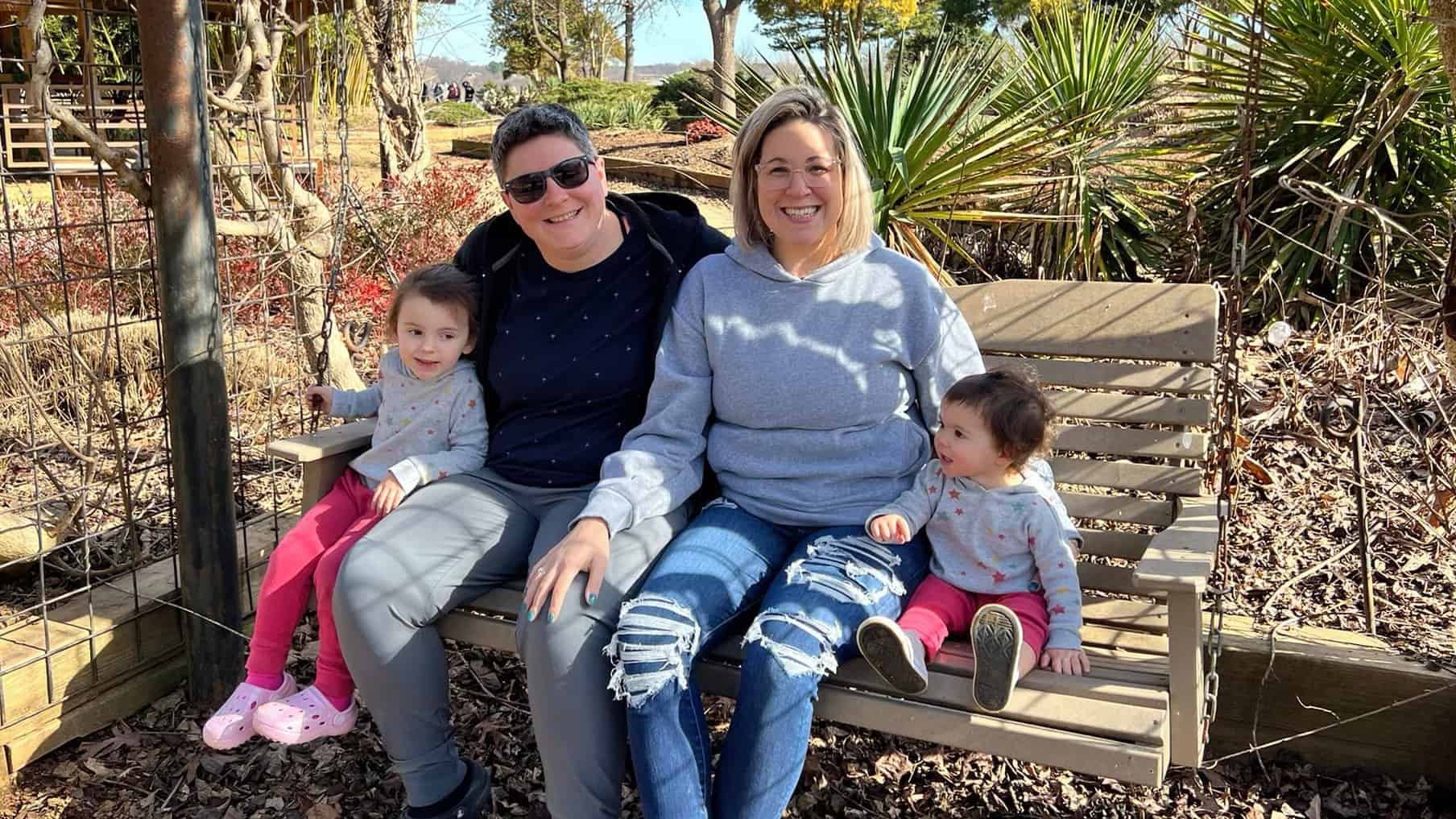In celebration of Women’s History Month this March, SAFE Project is sharing interviews with women making a difference in the fields of mental health, substance use, recovery, & fighting the stigma that accompanies it.
Tell us a little bit about yourself.
My name is Heather Asbury, and I am a Program Manager for SAFE Communities here at SAFE Project. I manage a lot of our recovery projects, including training, resources, technical assistance, and I work closely with communities across the nation.
I’m also a person in recovery — I’ve been in recovery for nine years.
Congratulations, Heather! How do you think your lived experience has guided you or your work?
You know, I really see it in two ways: how it’s helped and also how it’s not helped. I’ll start with how it has helped, and that’s the fact that I get it, I feel it, and I’ve been there. I live with it every day; the disease of addiction is not curable, it’s just in remission right now. But I still feel it every day. I never forget the last day that I used substances because I never want to forget that pain. The farther I get away from the pain, the more complacent I get. And I never want to get complacent. I also have worked in my local community as a peer recovery specialist. So as a community member, and as a provider, I also understand their perspective, and what resources we’re lacking and what gaps there are. And really, I can also see firsthand what we’re doing well in our communities, and can recognize things that we may be able to adopt from other communities.
What’s not helpful is: I only have my experience, based out of my local community, where, for example, the substance of choice in my community may be very different than it is elsewhere. Resources are different, the population is different, the culture is different. So I’m only limited to my own experience.
Why do you think it is important to share your experience?
Some people like to keep it anonymous, and I totally respect that, and I understand it. Unfortunately, there’s stigma and discrimination around those that have substance use disorder, whether they’re in active use, or in recovery. And those individuals who choose to be anonymous have likely struggled with that stigma, discrimination and stereotyping. So staying anonymous helps them feel protected, especially when they’re in higher ranking leadership positions, like CEOs, lawyers, and presidents, or when they’re in the government space, like government employees, military, or law enforcement.
For me: my story is all I have, plus my education and my knowledge of working in this field for eight and a half years. But for me, I think that it’s important to share my experience so that people can relate because it wasn’t until somebody shared their experience with me, until I felt comfortable, really getting vulnerable and getting honest about where I was at. And that meant realizing also that I needed help.
I share my story to hopefully show that recovery is possible, too. Don’t ever assume that somebody does or doesn’t have substance use disorder, by the way that they look and feel, where they live, what color their skin is, what their culture is, how many parents they have, things like that, because you never know. I just know how it made me feel the first time somebody shared their experience with me, and so I just try to give back in that way.
What kind of services or programs would you like to see in order to help those that are in active addiction, in recovery, or those that are currently turning to harm reduction methods for wellness?
If you would have asked me this nine years ago or seven years ago, my answer would be completely different, but where I am today I have to think, “How do we achieve the goal SAFE Project has — to keep people alive — to give them the next opportunity to find wellness?” I think that is through harm reduction efforts.
I don’t see addiction ever going away. As long as there are substances, there will be addiction. I guess taking it further, addiction can be more than just the substances we usually think of; it could be sex addiction, and addiction to exercise, caffeine, eating… and more of course. But, because this isn’t going away, what I would like to see is advancement in harm reduction efforts.
We are finding that safe consumption sites have had great success in the United States, and we’ve seen zero deaths in those facilities. These sites and organizations provide that safe place where people can start to have those conversations. They can ask what would recovery look like, what would safer use look like, what would moderation in use look like… There’s also so much more harm reduction. Getting life-saving medications like naloxone out there, making sure that they’re affordable and accessible for everybody will also save lives, whether it’s people who use drugs carrying it, or people who love them, or just a Good Samaritan.
And then, of course, I’d love to see continued emphasis on the impact of stigma. I’ve recently had conversations about the concept of “nice racism,” and it’s made me think: How am I being stigmatizing to this specific community? It’s made me think about all the biases and stigma that we are surrounded by and it’s made me think of how I am perpetuating that. So I have to be aware we all do, and then ask ourselves, “What are we going to do about it?”
What would you say to someone who is thinking about whether they are ready to seek recovery?
I often get really passionate about this and get really excited, and I start to ramble… And then I sometimes scare people and overwhelm them. So if I would say one thing, it would be, “You never have to feel like this again. Never. And you are not alone.”
You never have to feel like this again. Never. And you are not alone.Heather Asbury, SAFE Communities Program Manager
That’s powerful. You are not alone. What would you say to someone that doesn’t understand that concept, someone that is teetering the line of acceptance and understanding for someone with substance use disorder or someone in recovery?
That everybody deserves love, just like they would want to be loved and cared for. But I’d also want to have a conversation with: how were you affected? Where have you been hurt by somebody who uses drugs? Because oftentimes, that’s where that stigma comes from. Where is that signal coming from and let’s get to the root of that.
It’s not about how you feel about safe consumption sites, it’s why do you feel that way? Let’s get to the core of it.
Is there any message you’d like to give your own daughters about what it means to be a woman and a woman that is accepting, that is an ally and a supporter of everyone out there?
Well, my daughters are four and 18 months. My 18 month old is still developing her personality and her words. But, my four year old… she talks a lot. She asks a lot of questions. She asks me, “Why?” every time I ask her to do something or when I tell her something. She always asks, “Why?” Sometimes my “mom frustration” response is, “Because I said so!” But then I sit back and I think, and I go back to her and I tell her, “Peyton, I don’t ever want you to stop asking why. Don’t ever stop pushing the limits. Don’t ever stop being curious.” I don’t want them to ever stop wondering why the sky is blue or why that person’s crying on the bus. I don’t ever want them to stop asking. They have a voice — we all have a voice — and I want us to use it.
Is there anything you would like to add about the importance of this work?
You know, I just want to say we should all love one another. We never know what somebody’s going through. We never know what experience somebody has, how they’ve been hurt or traumatized. You never know.
When I get angry at a person that cuts me off, it ruins my day but that person doesn’t even know. They’re not fazed by my anger, so who am I really harming by being mad? If we just give kindness and compassion to everybody around us, everyone will feel much better about themselves and about the world, and maybe they won’t give up the fight. They’ll just keep moving. Some days are harder than others, but we will be able to keep moving.

